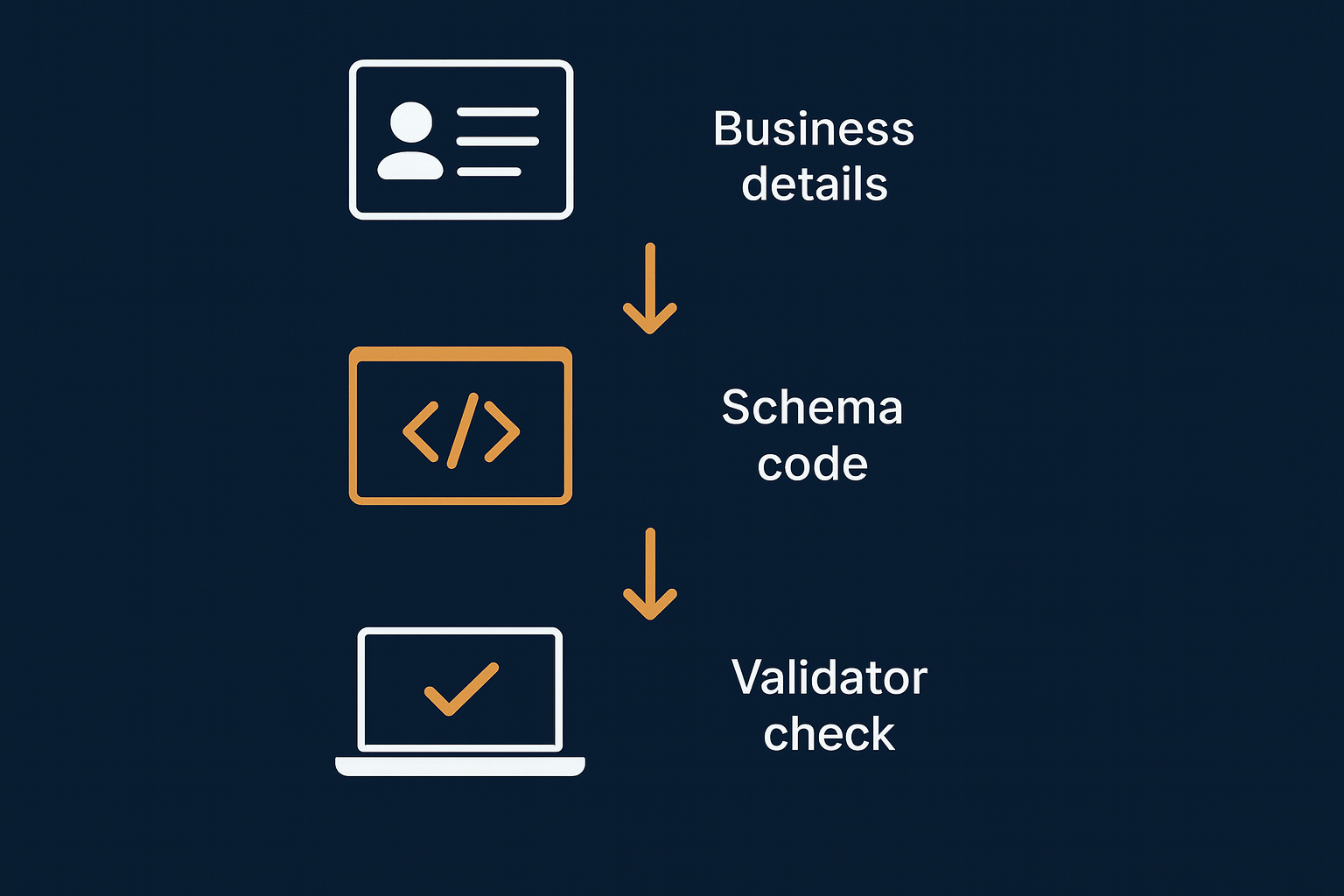Introduction
Standing out on Google can be difficult. Every business wants to be at the top of the list. One of the most cost-efficient and underrated ways to get Google’s attention is to implement local schema markup. With the right structured data in place, Google can gather additional data about your business. Then, as a result, Google can add star ratings, business hours, and addresses to your listing on the search results. This will result in improved click-through rates and will help build trust in your business locally.
What is Local Schema Markup and Why Is It Important?
Local schema markup is a piece of code you add to your website to help Google and potential customers identify the most important parts of your business. It highlights your location, service, reviews, and operational hours. Unlike metadata, which is basic, local schema markup tells Google exactly what your business is and the location in which you service.
With local SEO schema markup, local businesses can unlock higher search results on Google’s local searches. Furthermore, an optimized local business schema boosts your chances of appearing on Google’s Local Pack and Maps, allowing potential customers to see your business instantly and increasing foot traffic. Understanding the different Types of Schema in SEO helps businesses choose the right structured data to improve visibility and search performance.
The Fundamentals of Local Schema Markup
Knowing how to apply local schema markup starts with what details a business has to determine what’s important to Google. This includes:
- Business name.
- Address and phone number (NAP).
- Business hours.
- Reviews and ratings.
Combining local SEO schema markup with structured data showcases your local presence and fosters trust. Likewise, with a local business schema, Google knows how to accurately categorize your business and location. To strengthen this visibility further, investing in local seo services helps boost rankings and reach targeted
KEY TOOLS AND VALIDATION FOR SCHEMA IMPLEMENTATION
Testing is crucial for every schema implementation. You can use a schema markup validator to determine if your structured data is free of any errors. In addition to this, a schema validator tool helps ensure Google can read your markup.
For convenience, businesses can use a schema markup generator that creates ready-to-use codes for them. If your site has multiple formats, using a schema generator from XML to automatically generate markup is a smart approach.
STEPS FOR IMPLEMENTING LOCAL SCHEMA MARKUP
From here, your data points should be your business name, address, and phone number.
Then, for accuracy, generate markup using a schema markup generator or a schema generator from XML.
- Identify key data points – Start with your business name, address, and phone number.
- Generate markup – Use a schema markup generator or a schema generator from XML for accuracy.
- Insert into your site – Add code to your website’s <head> section or through Google Tag Manager.
- Validate – Use a schema markup validator or a schema validator tool to check for errors.
- Monitor results – Regularly test and refine using schema-generated strategies to keep your markup updated.
For advanced applications of schema markup
For advanced applications of schema markup, refer to larger organizations, for example, that automate markup via schema generators from XML. This is helpful, especially for organizations with multiple pages to update frequently.
Regularly updating local business schemas helps companies keep ahead of the competition since search engines quickly respond to changes in structured data, boost your website’s rankings and traffic by exploring tailored SEO packages in India designed to fit diverse business needs.
How Local Schema Markup Improves Local SEO Visibility

Best Practices for Local SEO Schema Markup
- Make sure your local SEO schema markup is current.
- Regularly check with a schema markup validator.
- Use a schema validator tool and schema generation options to eliminate inconsistencies.
- Incorporate additional schemas for reviews, FAQs, and location details for greater impact.
Common Mistakes and How to Avoid Them
- Putting too much local schema markup in. Don’t copy data that doesn’t need to be copied.
- Ignoring validator errors: Always use schema markup validators or other schema validator tools to check.
- Using outdated generators: Make sure your schema markup generators or schema markup generator markups are updated with new schema.org standards.
Top Tools for Schema Markup Success

The Future of Schema and Google Recognition
As time goes on, local business schema will become increasingly important to Google and local searches. With the schema quiz and other interactive tools, developers and SEOs will be able to keep up with changes. Schema generators from XML and schema generation tools will offer more automated, precise, and streamlined implementations as automation advances.
Conclusion
Local schema markup is more than just code-it’s a bridge between your business and Google. By using schema validators and schema generation tools like a schema validator tool and a schema markup generator, you ensure your business stands out locally.
For the greatest results, constantly improve your structured data with local SEO schema markup and local business schema, and test it often. Schema makes sure that Google sees your business, not just sees it. Get in touch with us to learn more or receive personalized SEO help.

